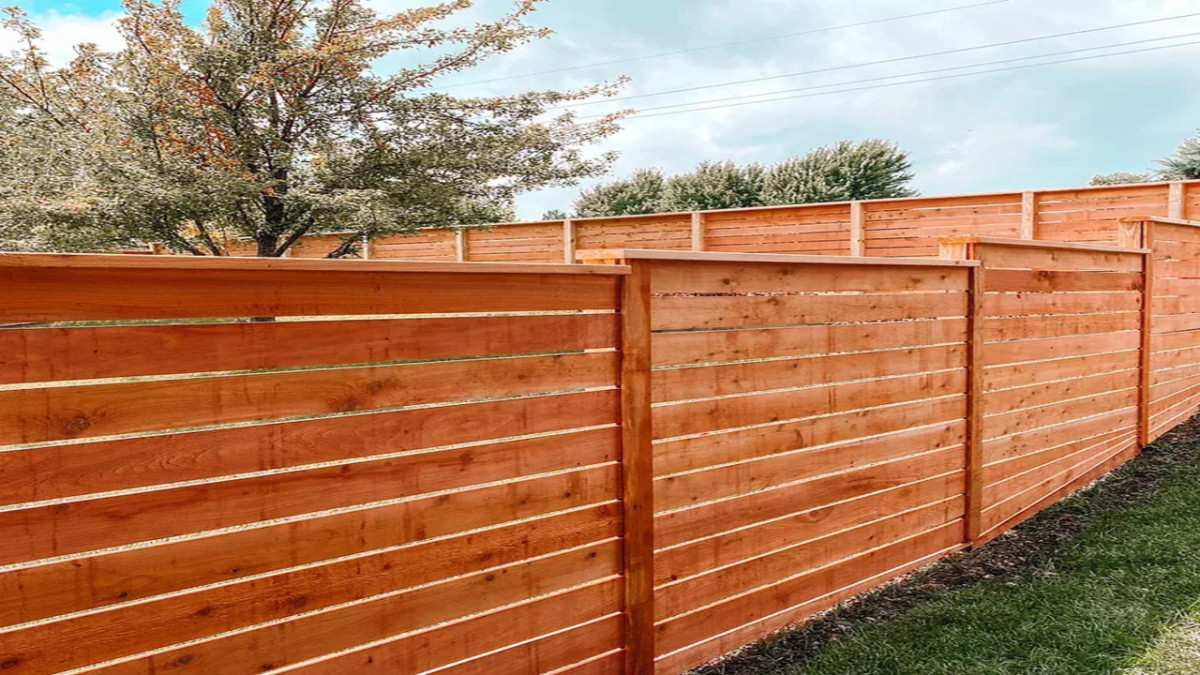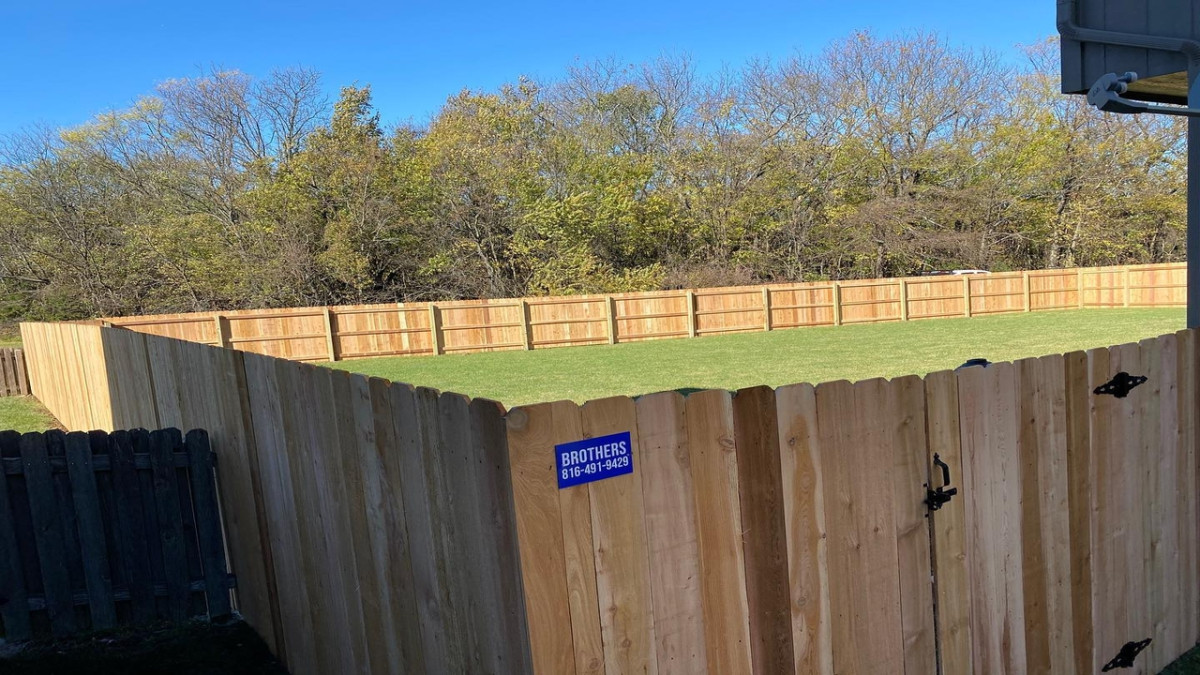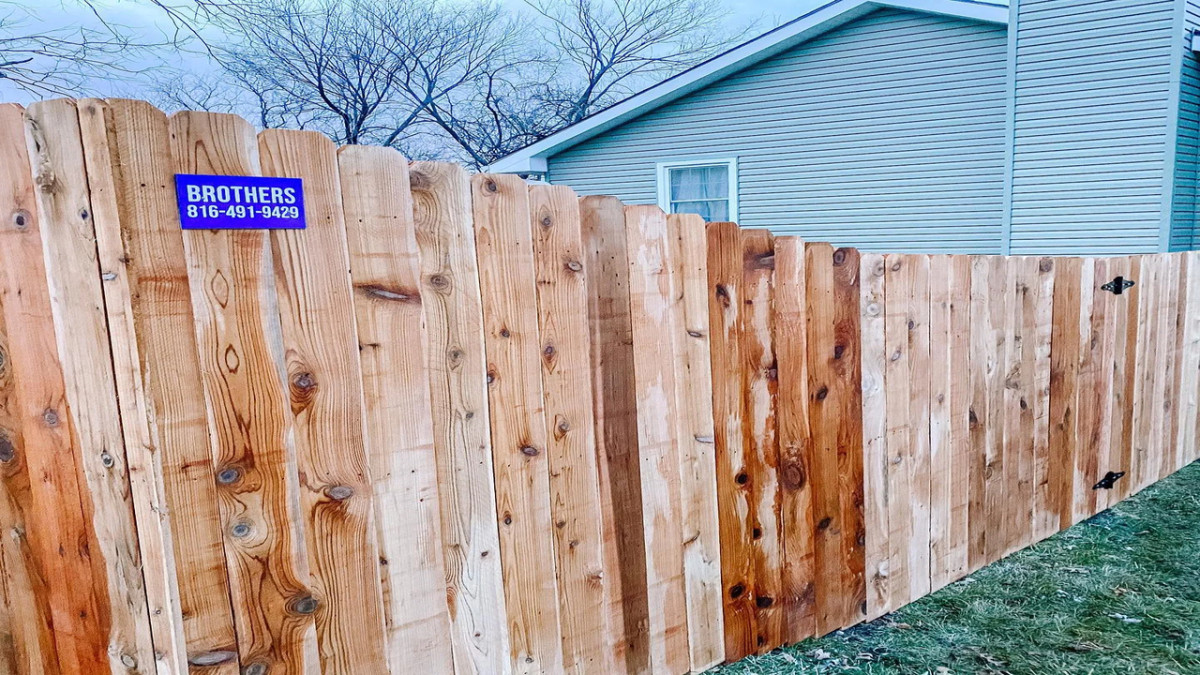Top Wood Choices for Building Durable, Attractive Fences in the Kansas City Area
Pleasant Hill, United States - May 20, 2025 / Brothers Fence LLC /
When planning a wood fence installation in Kansas City, MO, one of the most critical decisions you'll face is selecting the wood species. The types of wood for fences vary widely in terms of durability, appearance, and maintenance requirements. In this guide, Brothers Fence will explain the types of wood that work best for different fencing needs to help you make an informed decision.
What Should You Consider When Choosing Fence Wood?
Choosing the right wood for your fence involves considering various factors, including the local climate, your budget constraints, and your aesthetic preferences. Each wood type offers distinct advantages that might make it perfect for your specific needs. Here are the most popular options:
Is Cedar a Good Choice for Fencing?
Cedar stands out as one of the most popular choices for residential fencing. Its natural oils make it highly resistant to rot, decay, and insect damage, which is particularly valuable in areas like Kansas City with variable weather conditions.
You can enjoy these benefits:
- Natural weather resistance: It contains natural oils that actively repel insects and prevent decay throughout its lifetime.
- Aesthetic appeal: It features a rich, warm color with a pleasant aroma that enhances your property's appearance.
- Low maintenance: Compared to other wood types, it requires minimal upkeep, saving you time and effort over the years.
Many Kansas City homeowners choose cedar for its beautiful reddish tones that weather gracefully to a distinguished silver-gray patina over time.
Is Redwood Worth the Investment for Fencing?
Redwood fencing provides unmatched natural elegance for those seeking premium quality and exceptional beauty. Though it comes with a higher price tag, many consider it a worthwhile investment. Redwood offers outstanding benefits:
- Superior durability: With proper care, it can last several decades, making it a truly long-term investment in your property.
- Natural pest resistance: It contains tannins that naturally deter insects and prevent infestations from damaging your fence.
- A distinctive appearance: It showcases a rich, reddish-brown hue that significantly enhances your property's value and curb appeal.
Redwood's remarkable resilience makes it especially suited for areas with mild to dry climates. When compared to other types of wood for fences, it performs admirably, though it typically requires a higher upfront investment.
Is Pressure-Treated Pine Durable Enough for a Fence?
If budget considerations are paramount, pressure-treated pine represents an excellent balance between affordability and longevity. The treatment process infuses the wood with preservatives that significantly enhance its resistance to environmental damage.
The key advantages of pressure-treated pine include:
- Cost-effectiveness: It offers the most economical option for fence construction without sacrificing essential durability needs.
- Enhanced durability: The pressure treatment process extends the lifespan of pine considerably beyond what untreated wood could provide.
- Versatility: This type of wood can be stained or painted to achieve virtually any desired appearance.
This option works particularly well for homeowners seeking a practical solution without compromising too much on longevity.
Should You Consider Cypress for Humid Climates?

For those in more humid areas, cypress wood deserves serious consideration. Native to southern regions, cypress contains a natural oil that provides excellent protection against moisture and insects. Cypress wood offers these premier benefits:
- Moisture resistance: It performs exceptionally well in wet environments due to its natural water-repelling properties.
- Structural stability: This wood resists warping and twisting, even in variable conditions that challenge other fence materials.
- A distinctive character: Its unique yellowish to light brown coloration creates a warm, inviting boundary for your property.
Many Midwestern homeowners find cypress to be particularly valuable due to its ability to withstand seasonal weather fluctuations without significant deterioration.
Is Spruce a Viable Budget-Friendly Option?
If you're working with tight budget constraints but still want a natural wood appearance, spruce fencing offers a viable solution. While not as naturally durable as some premium options, properly treated spruce can still provide years of service. Consider these benefits:
- Affordability: It represents one of the most budget-friendly options available for homeowners looking to maximize value.
- The light appearance: This wood features a clean, pale coloration that accepts stain well and can be customized to your aesthetic preferences.
- Workability: It is particularly easy to cut and install, making it extremely popular for DIY projects and custom designs.
Regular maintenance, including sealing or staining, is essential to extending the lifespan of spruce fencing. This material requires more long-term upkeep but offers the lowest starting investment.
How Do Maintenance Needs Compare Across Wood Types?

Understanding the relationship between the types of wood for fences and their maintenance requirements helps set realistic expectations. Different woods demand varying levels of care to maintain their appearance and structural integrity.
Cedar, redwood, and pressure-treated pine require attention every few years, while spruce may need more frequent upkeep. Materials requiring higher upfront investments are typically more durable, meaning you may not need to apply sealants or repair boards as frequently. Consider your willingness to perform routine inspections and maintenance as you make your decision.
The fence installation process also impacts long-term durability, with proper post-setting and adequate drainage being particularly important factors.
Which Wood Type Works Best in Kansas City's Climate?
Your local climate plays a crucial role in determining the optimal fence material. Midwestern homeowners face unique challenges with seasonal temperature swings and varying moisture levels.
Our region's humidity levels affect wood performance. Consider that cedar and redwood generally excel in drier conditions, while cypress performs best in wetter regions. For Kansas City residents, woods with good resistance to moisture and temperature variations generally perform best over time.
Choosing the Right Wood for Your Fence Starts With Trusted Advice
At Brothers Fence, we've helped countless homeowners select the ideal types of wood for fences that meet their specific needs and budget. We understand that a fence represents a functional boundary and an important aesthetic element of your property.
Learn more about proper wood fence maintenance to protect your investment for years to come. Our team brings years of experience selecting quality materials that stand the test of time in Midwestern conditions.
Are you ready to explore the best types of wood for fences for your Kansas City home? Contact Brothers Fence at (816) 533-3646 to schedule your consultation with our expert crew today!

Contact Information:
Brothers Fence LLC
101 North RT-7, Pleasant Hill, MO 64080, United States
Pleasant Hill, MO 64080
United States
Gabriel Brown
https://brothersfencellc.net/
Original Source: https://brothersfencellc.net/blog/best-types-of-wood-for-fences-kansas-city/

